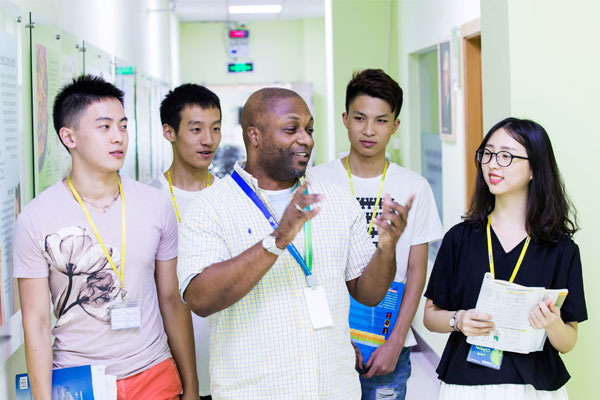时间:2017-07-20 10:50:40
来源:网络 作者:Alex

At this moment in Mason Bates' opera "The (R)evolution of Steve Jobs," a harrowing sound emerges from the orchestra pit, a crushing downward progression that's described in the score as an "electronic shutdown.""It's a combination of a stand-alone synthesizer with the actual sound on the old Macs of hard drives turning off — and one in reverse booting up," Bates explained in an interview last week at the Santa Fe Opera, where his work will have its world premiere on Saturday.
"That moment is the realization of his mortality, so I wanted to have that kind of shutdown sound," Bates said. "Even if you can't recognize it, it adds a little authenticity that the guy who is the subject of this opera is the creator of some of the devices we're hearing."Bates, 40, enjoys a growing reputation for orchestral scores that combine traditional instrumentation with electronics. Appropriately for the subject of the opera, he composes on two Apple computers, which he will "play" during performances to launch sounds and rhythms at just the right moment.
As an innovator in how music communicates, Bates said he became fascinated by the idea of an opera about Jobs, "the man who changed the way we all communicate."He approached librettist Mark Campbell and they agreed on a framework for the piece. In 18 scenes, the opera hopscotches back and forth through Jobs' adult life from 1973 to 2011, with a prologue and epilogue that bookend the story in 1965 in the garage of his boyhood home.
Campbell said he rejected the idea of a straight linear progression because "I wanted to place events the way the mind recalls them. We don't remember things chronologically, we connect them emotionally."He and Bates also agreed the opera would neither glorify nor vilify Jobs, a genius innovator but flawed human being who long refused to acknowledge a daughter born out of wedlock and drove his employees — and himself — ruthlessly.
The opera unfolds in a single act of about 90 minutes, in Campbell's words, "as quick and streamlined as the technology Jobs created." This sense of fleetness is reinforced by the production, directed by Kevin Newbury, which uses rectangular screens with projected images that move about the stage for seamless scene changes.
Bates makes extensive use of the synthesizers and other computer-generated effects for which he is known. But much of the score is richly melodic and relies on more-or-less traditional orchestration to accompany the singers.
"I've found in my symphonic music that electronics are a little bit like a pet snake," Bates said. "Treat them very carefully. Twenty-five percent of the power of electronics is the silence when you're not playing them. Because then when they come in, they're a new element."Each character has a unique sound world. As Bates described it, there are "quicksilver electronics and acoustic guitar picking" for Jobs and "oceanic strings and grounded harmonies" for his wife, Laurene. Kobun, Jobs' Buddhist spiritual adviser, has "prayer bowls, gongs and chimes"; Steve Wozniak, Apple's co-founder, has "saxophones that associate him with a jazzy world"; and Jobs' girlfriend, Chrisann Brennan, is "our hummingbird with this glittering upper register.""When people start interacting, those sound worlds collide and wash into each other," Bates said, "and that's when things get interesting."Bates said he knew immediately he wanted Jobs to be a baritone, "a kind of Billy Budd with a little more edge." Edward Parks sings the role in Santa Fe, with mezzo Sasha Cooke as Laurene, tenor Garrett Sorenson as Wozniak, bass Wei Wu as Kobun and soprano Jessica Jones as Chrisann. Michael Christie will conduct.
"Jobs" is the 15th world premiere for Santa Fe and expectations are high. Further performances are already planned in the high-tech communities of Seattle and San Francisco, as well as at Indiana University, and a commercial recording will be released by the Dutch label Pentatone.
Matthew Shilvock, San Francisco Opera's general director, first heard the score at a workshop sponsored by Cal Performances and said he was "completely blown away by its musicality and humanity."Perhaps nowhere are these qualities more evident than in the emotional climax of the opera. It's 2007 again, and with Jobs still in denial about his pancreatic cancer, Laurene sings an aria that begins, "Humans are messy, awkward and cluttered." She's pleading with him to accept that he can't control the world the way he does his machines — and also delivering an ultimatum that he seek help if their marriage is to survive. At the end, he agrees.

